Fundamental Soil Science
Mark Coyne
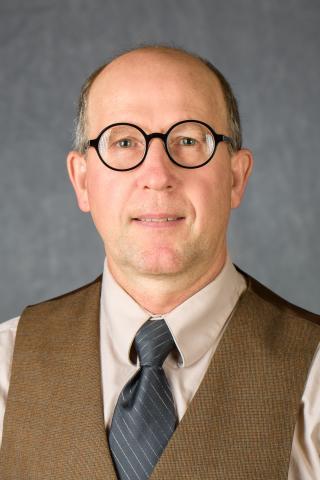 Soil Biology and Biochemistry Research
Soil Biology and Biochemistry Research
Dr. Coyne's research program in Soil Microbiology, Ecology, and Biochemistry focuses on N and C dynamics in agricultural environments, soil and environmental quality, fecal contaminants in the soil environment, and soil quality.
John Grove
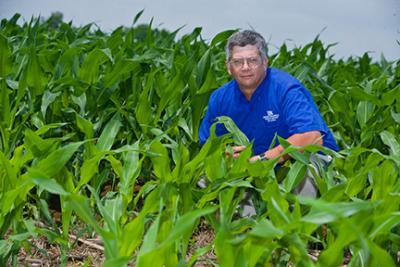 Soil Chemistry Research
Soil Chemistry Research
John Grove's research interest is in soil chemistry.
Chris Matocha
 Soil Chemistry and Soil Mineralogy Research
Soil Chemistry and Soil Mineralogy Research
Dr. Matocha’s research program interrogates coupled processes of reactive nitrogen with iron, manganese, and organic carbon in soil environments. Another research problem is focused on the impact of nitrogen fertilization on minerals in soil under no-till management.
Rebecca McCulley
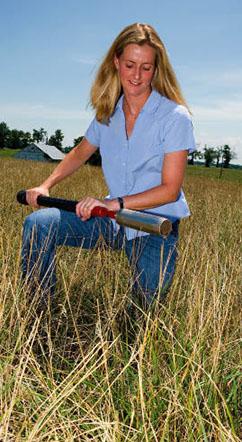 Soil Biology and Biochemistry Research
Soil Biology and Biochemistry Research
Our lab is interested in the structure and function of grass and shrub-dominated ecosystems. We explore how human land use interacts with climate, soils, and biota in these ecosystems to impact the storage and cycling of nutrients at both local and regional spatial scales.
Examples of research questions our lab addresses:
1. How do grasslands respond to climate and land use change?
2. What are the ecosystem consequences of fungal endophyte infection in tall fescue?
3. What controls litter decomposition in aridlands?
4. How do invasive species affect grassland structure and function?
Hanna Poffenbarger
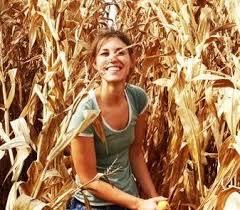 Soil Biology and Biochemistry Research
Soil Biology and Biochemistry Research
Dr. Poffenbarger’s research group studies how carbon and nutrients cycle in soil-crop systems and uses this understanding to develop sustainable soil management practices and resilient production systems. Specific areas of interest include: nutrient capture and release by cover crops, spatial and temporal controls on soil nitrogen dynamics, subsoil carbon storage, and stabilization of root-derived carbon.
Chris Shepard
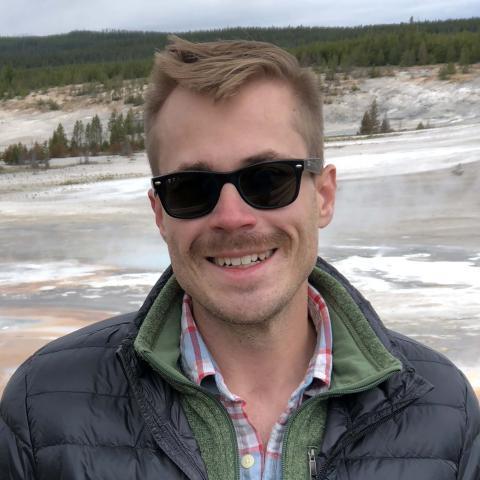 Pedology Research
Pedology Research
Chris Shepard is the Assistant Professor of Critical Zone Pedology in the Department of Plant and Soil Sciences. Chris started at UK in July 2018. Chris completed his Ph.D. and M.S. at the University of Arizona investigating the influence of climate change on soil formation globally and in the deserts of Southeastern Arizona. He’s interested in how soils form, and how that process is impacted by past climate and environmental changes.
Jason Unrine
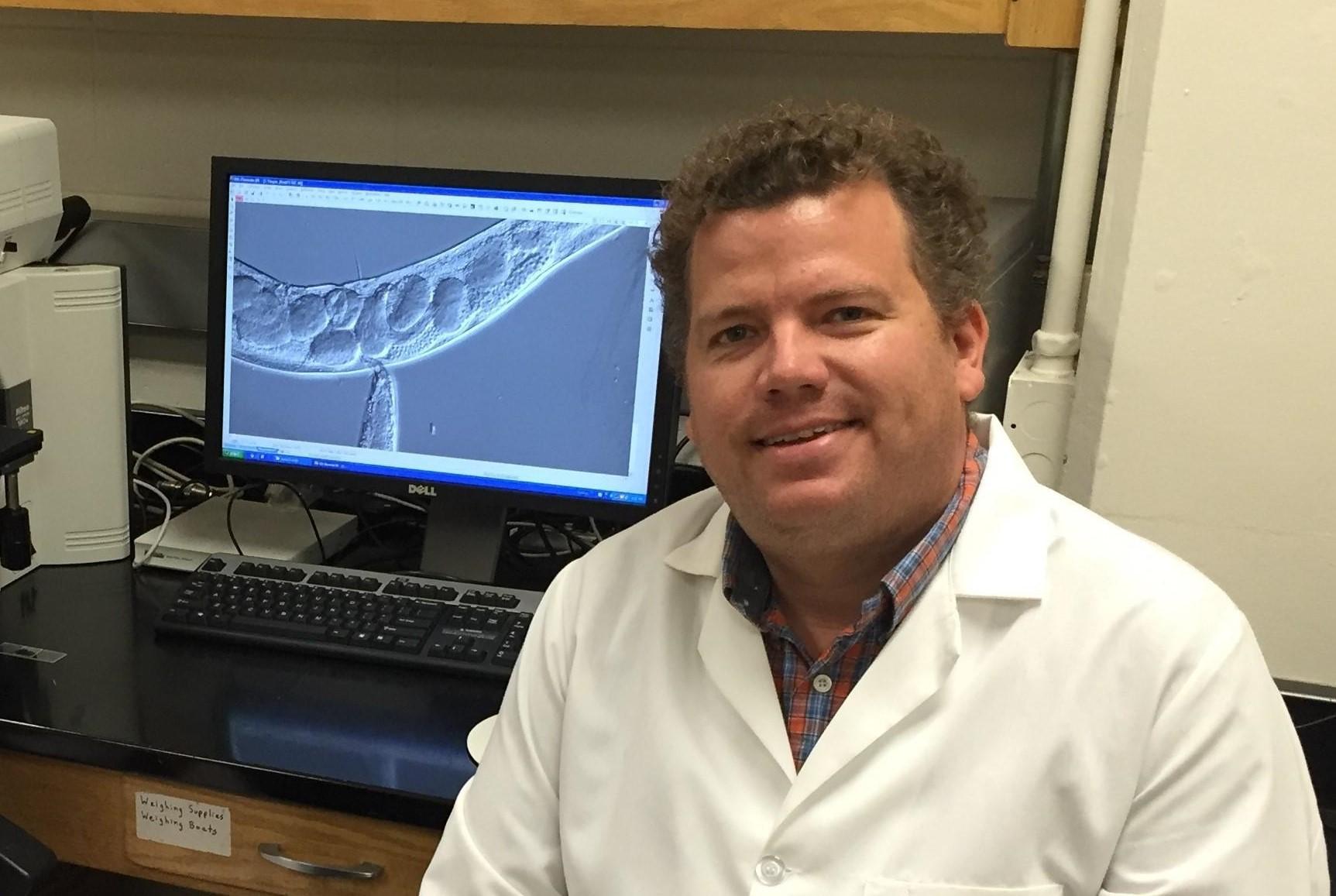 Soil Chemistry Research
Soil Chemistry Research
My research group investigates the environmental fate, transport and ecotoxicology of trace-elements and engineered nanomaterials. Much of our research focuses on the transformations and impacts of trace-elements and nanomaterials in terrestrial and wetland environments. We have developed tools that utilize advanced analytical, imaging and spectroscopic techniques to investigate the environmental transformations, bioavailability, bioaccumulation, trophic transfer and maternal transfer of these contaminants. We relate this information to adverse organismal effects with population level relevance. Working closely with Dr. Olga Tsyusko, we also use ecotoxicogenomics tools to help elucidate the biochemical mechanisms of contaminant bioaccumulation and adverse effects. Our work with nanomaterials focuses on how the properties of nanomaterials relate to their bioavailability and adverse effects and how these properties change in the environment. We also work in the area of environmental health focusing on human exposure to trace-elements in support of epidemiology studies being conducted by the Markey Cancer Center and collaborate with scientists and engineers working to develop cost effective contaminant source reduction and waste handling techniques for mining. We frequently collaborate with outside researchers and have helped address a wide array of problems in trace-element biology, geology and chemistry.
Ole Wendroth
 Soil Physics and Hydrology Research
Soil Physics and Hydrology Research
Our group is interested in soil landscape processes: We quantify soil water and solute transport processes at different spatial and temporal scales, their co-regionalization and relationship to landscape elements, biotic and abiotic factors. In this context, we help farmers to improve their irrigation management through mapping zone delineation. Furthermore, our work is focused on the impact of land use and soil management on water and gas transport processes, and gas emissions, their scale dependence, and spatio-temporal behavior. Another major goal in our research program is to better understand spatio-temporal biomass development and crop yield variability in farmers' fields in order to improve nitrogen management. To achieve these goals, we develop on-farm experiments and use various remote sensing techniques in combination with stochastic and deterministic model approaches.
